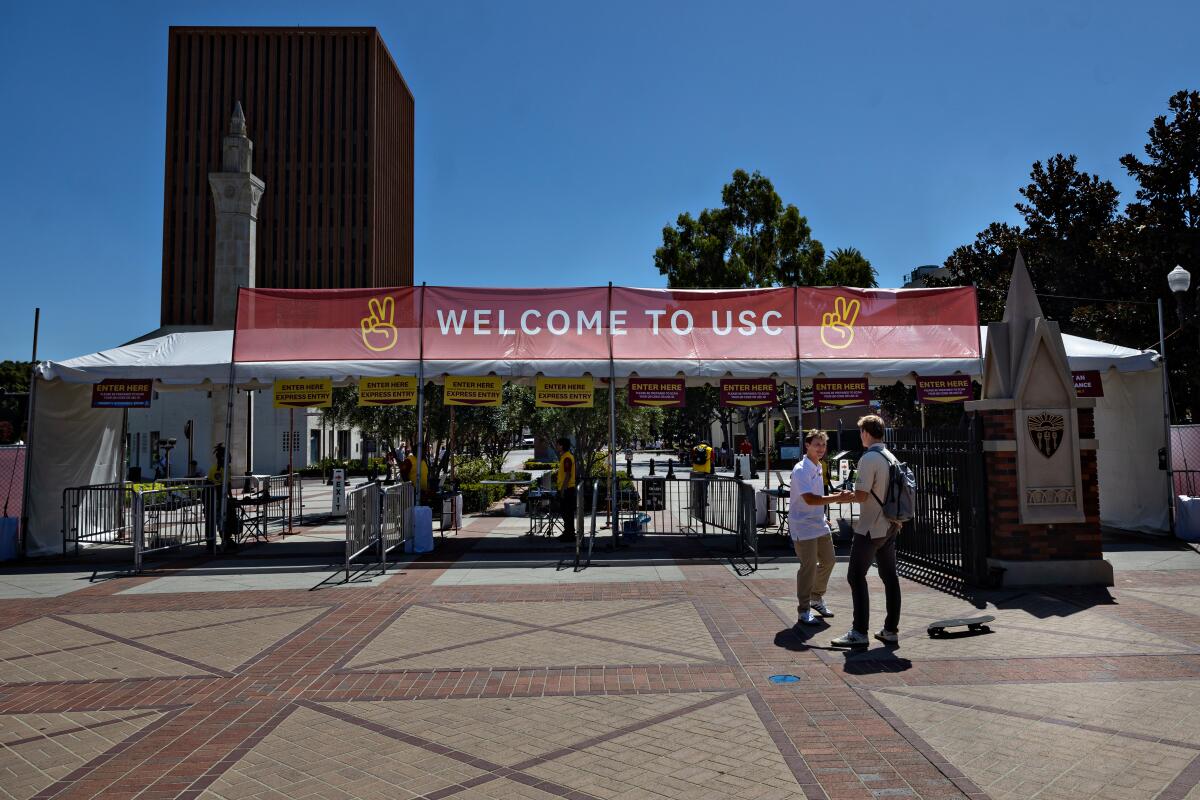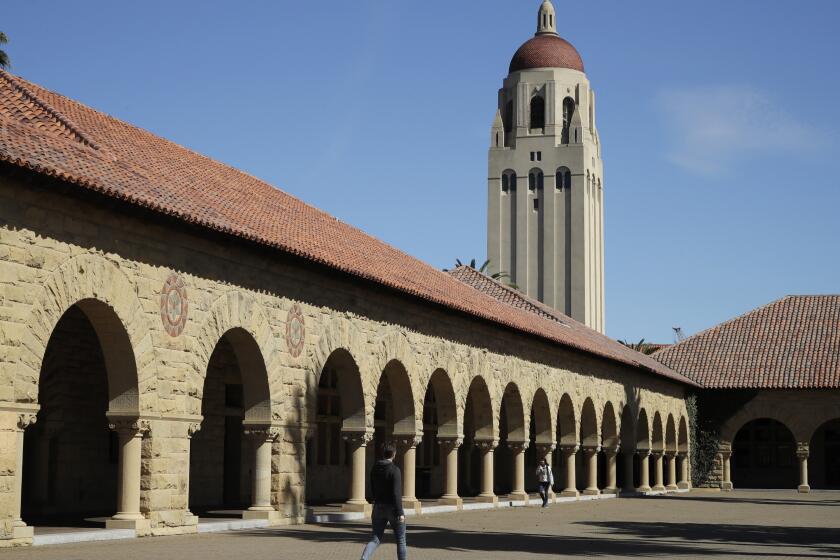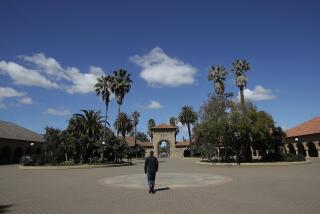California lawmakers pass bill banning legacy and donor college admissions

Lawmakers passed a bill this week that would make California one of the few states in the nation to ban private colleges and universities from considering an applicant’s legacy or donor connections during the admissions process — a move intended to strengthen fair higher education access to all students regardless of wealth or family influence.
However, the bill sent to Gov. Gavin Newsom was stripped of original provisions calling for strict financial penalties for private institutions that violated the law. Instead, the measure would require all private universities — including the University of Southern California and Stanford — to submit an annual report to the state disclosing the number of admitted applicants who were given admissions preferences because they are children of alumni or donors.
“If a university violates the law, there could be action by the attorney general,” said Assemblyman Phil Ting (D-San Francisco), author of AB1780. “I hope the AG would make violations a priority.”
California State University and the University California do not give admission preference to children of alumni or donors. Some private colleges, including Pomona and Occidental, have also dropped the practice in recent years.
Such preferential treatment attracted renewed opposition after the U.S. Supreme Court ruled last year that race-based affirmative action in college applications is unconstitutional.
Since then, legacy and donor advantages in admissions have been derided by Ting and other opponents who have gained steam in state legislatures, saying the practices tend to favor white and wealthy students.
In April, Maryland banned legacy admissions in all higher education, a month after Virginia did the same for public universities and colleges. Three years ago, Colorado became the first state to make legacy admissions illegal.
A new California legislative effort to ban state financial aid to colleges and universities that give admissions preferences to children of alumni and donors could hit USC, Stanford.
The law would affect a small number of California’s most selective schools that still do look at such connections when evaluating applications.
Under a 2019 state law authored by Ting, universities were required to provide an annual report to the state on legacy or donor admissions. The law — which expired in 2023 — was prompted by the Varsity Blues scandal, which revealed pay-for-play admissions for children of celebrities and other wealthy Americans at elite U.S. schools.
In 2023, USC said it offered admission to 1,791 undergraduate applicants who were relatives of donors or alumni, or about 14.5% of admitted students. At Stanford, the number was 295, which represented about 13.6% of admitted students. The share was smaller at other universities.
At Santa Clara University, it was 38. Claremont McKenna and Harvey Mudd colleges each reported offering admission to 15 students who had legacy or donor connections.
A ruling against affirmative action in admissions has renewed scrutiny over special treatment for children of alumni. USC and Stanford are potential targets.
Each of the five institutions emphasized that those admitted students met their regular admissions standards.
Dozens of other private universities that submitted information to the Assn. of Independent California Colleges and Universities, which sends its data to Sacramento, reported alumni or donors ties were not considered in any of their applicant evaluations.
In an interview, Ting said his goal was to “make sure we have equity and fairness in state admissions.”
Ting originally wanted the bill to force colleges that violate the law to pay penalties matching the amount they received in Cal Grant payments. The Cal Grant program is the state’s primary tuition subsidy for low-income students and can amount to millions of dollars at some schools.
He admitted that without financial penalties tied to Cal Grant money, the proposed law would be weaker than he initially envisioned.
Ting said he was told by university representatives that they would be “law abiding” if Newsom signs the measure by a Sept. 30 deadline.
Responding to questions from the Times, the universities who earlier reported using legacy and donor status in admissions, as well as the association that represents them, said that they would follow the ban if Newsom signs it into law.
In an email, a USC representative said it had no position on the bill and would “comply with state law” if it is signed.
The schools also pointed out that they have made strides in admitting more low-income applicants.
“We have been clear throughout the discussions on this bill that we welcome the opportunity to help ensure people have confidence in an admission process that is equitable for all,” said Kristen Soares, president of the Assn. of Independent California Colleges and Universities. “Our colleges and universities are compliance-driven institutions, and if the bill is signed into law, they will work faithfully to meet the implementation date of September 1, 2025.”
Representatives for Santa Clara University and Harvey Mudd College offered similar responses.
Stanford and Claremont McKenna College did not reply to requests from The Times.
More to Read
Sign up for Essential California
The most important California stories and recommendations in your inbox every morning.
You may occasionally receive promotional content from the Los Angeles Times.













